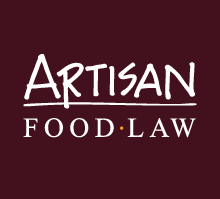Hazards and Crisis Management: Introduction
Investigating and managing incidents to ensure food safety is a key part of the work of the Food Standards Agency (FSA). The Incidents and Resilience Unit of the FSA maintains the Incident Management Plan for Non-Routine Incidents.[1]
This plan provides the necessary structures and governance arrangements to enable the FSA to scale up its incident response to manage all types of incident. It also sets out how we now communicate food or feed safety issues with Europe and internationally since the UK exited the EU.[2]
The FSA defines a food incident as:
Any event where, based on the information available, there are concerns about actual or suspected threats to the safety, quality or integrity of food and/or feed that could require intervention to protect consumers’ interests. Quality should be considered to include food standards, authenticity and composition.[3]
The definition is the same as that provided in the Food Law Code of Practice (England).[4]
The framework for the investigation, management and response to food and feed incidents comprises several key components:
- The framework provided by the Food Law Code of Practice (England), Incident Management Plan for Non-Routine Incidents, Guidance on Food Traceability, Withdrawals and Recalls within the UK Food Industry[5] and the Feed Law Code of Practice (England).[6]
- The arrangements at the UK level for warning systems to notify any problems with the safety of food or feed, including local authorities and other government departments.
- Information from the International Food Safety Authorities Network[7] (INFOSAN) or the Import of Products, Animals, Food and Feed System (IPAFFS).
- The UK is no longer a member of the EU Commission Rapid Alert System for Food and Feed (RASFF) network, but the FSA still receives food and feed safety related information where the UK is affected.
- The ability of Parliament to legislate in the case of specific emergencies and UK plans for the management of crises.
In 2020-21 the FSA investigated 1,978 food, feed, food contact material and environmental contamination incidents in England, Northern Ireland, and Wales.




